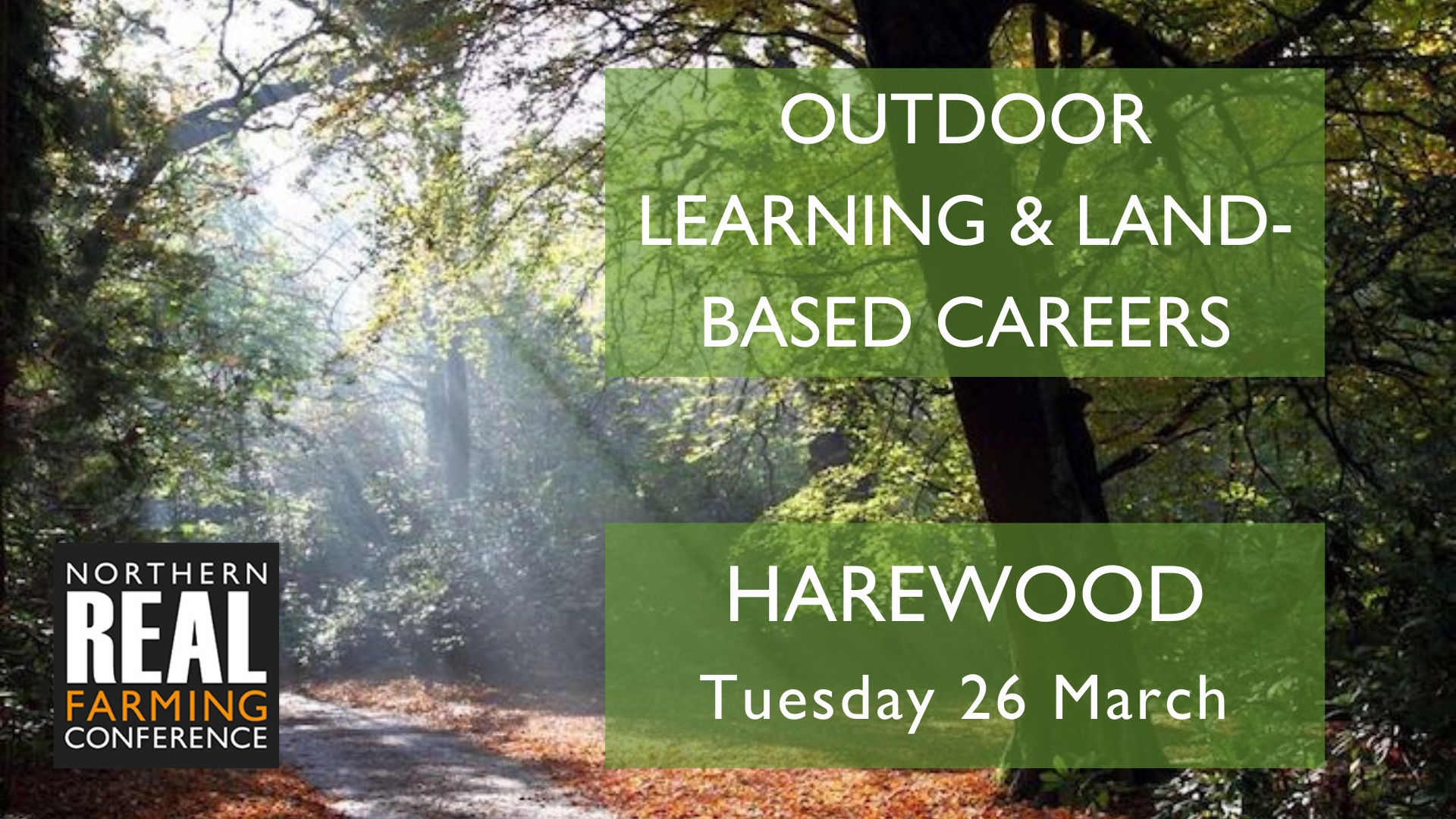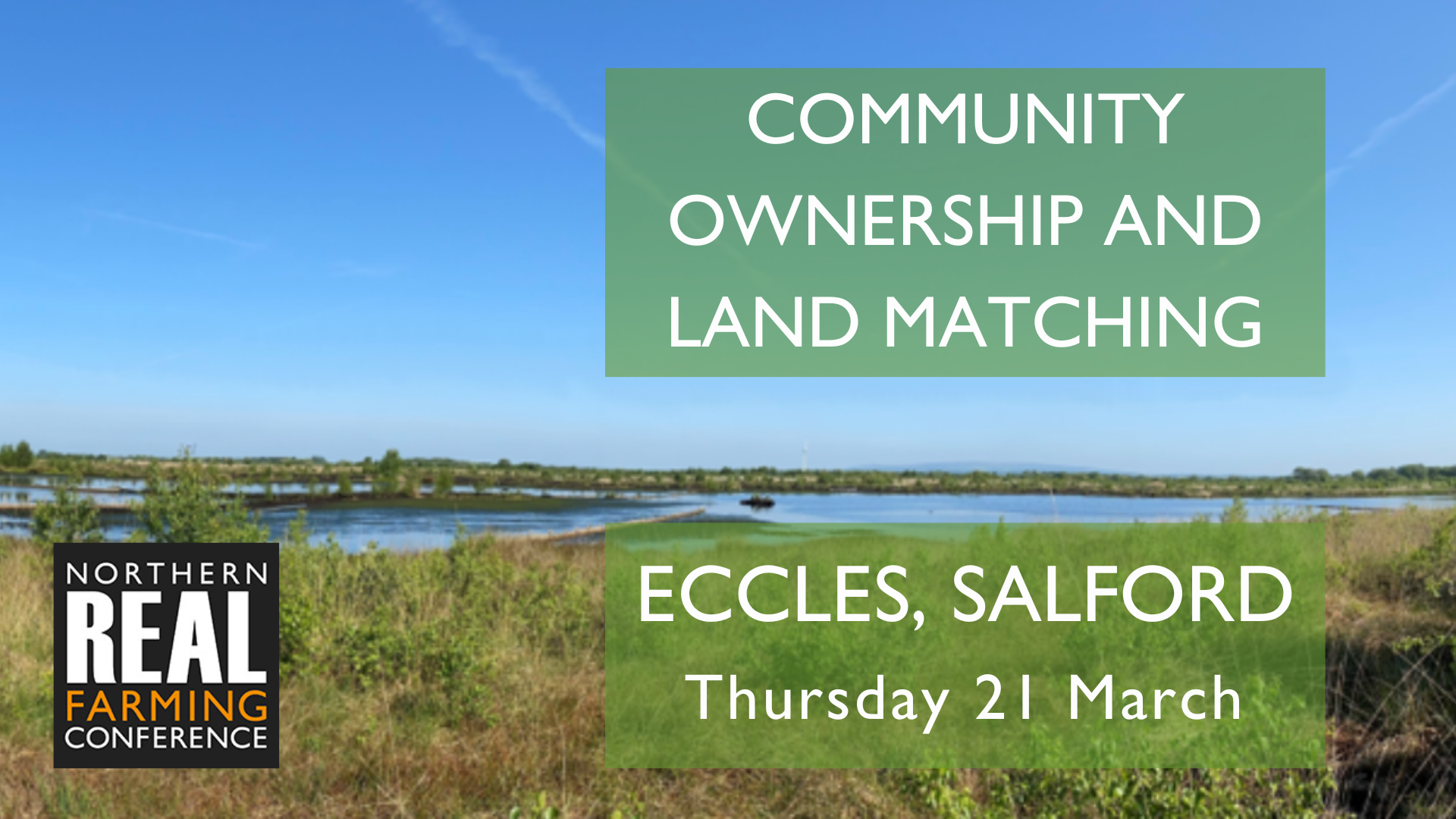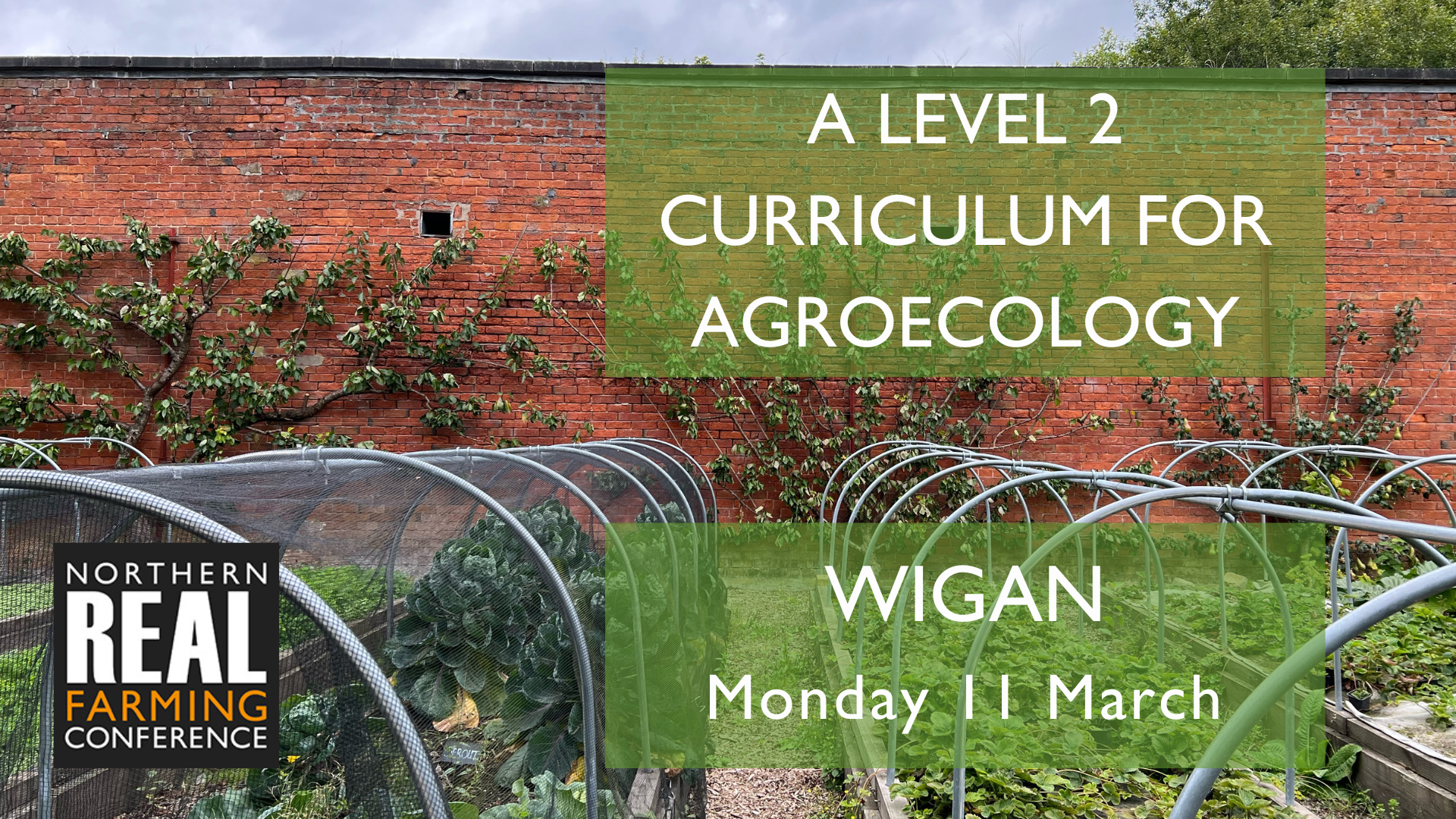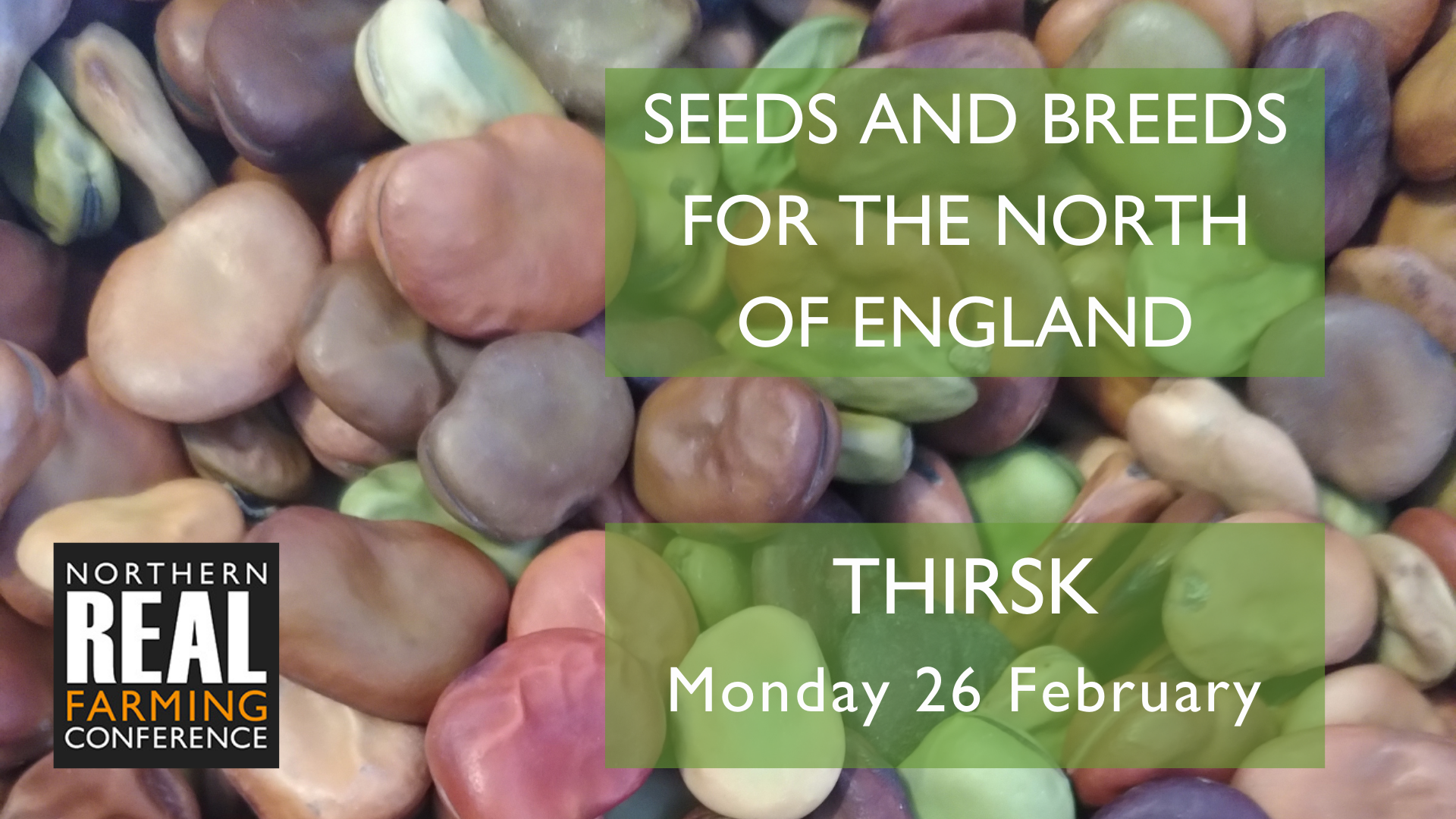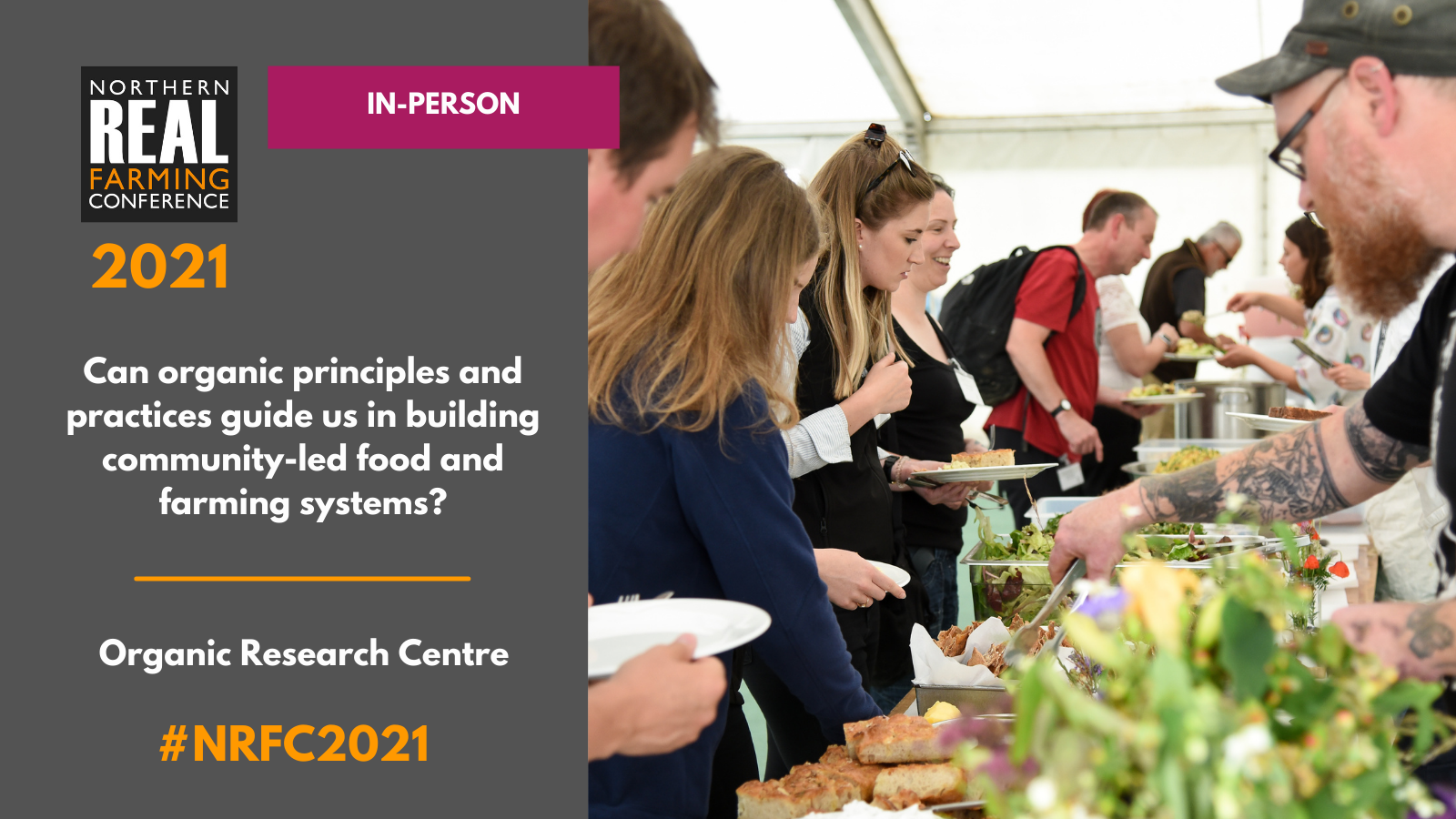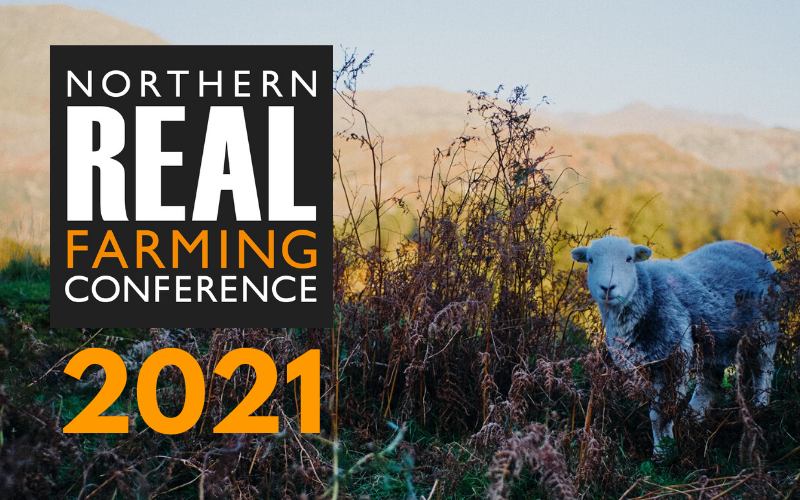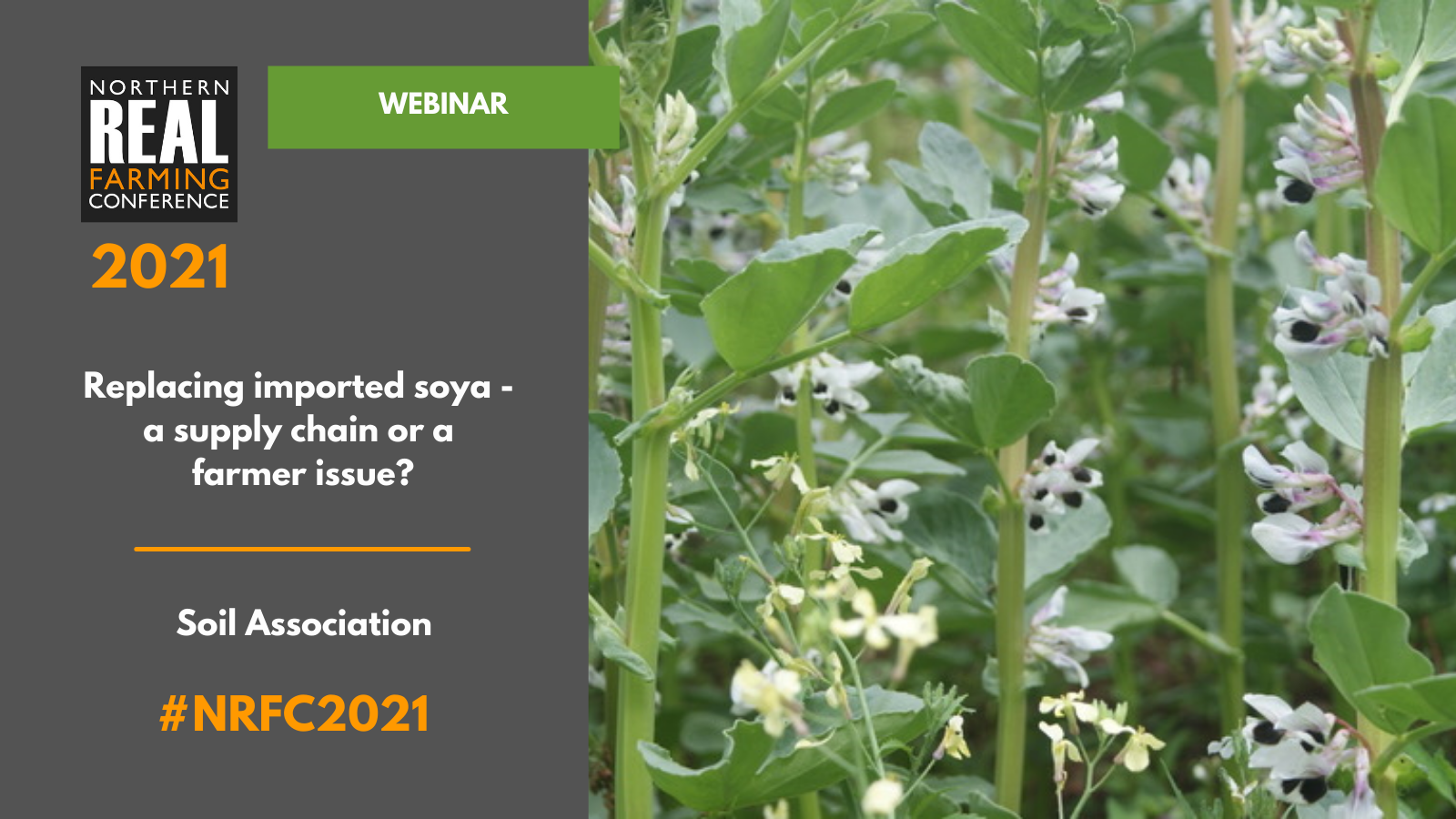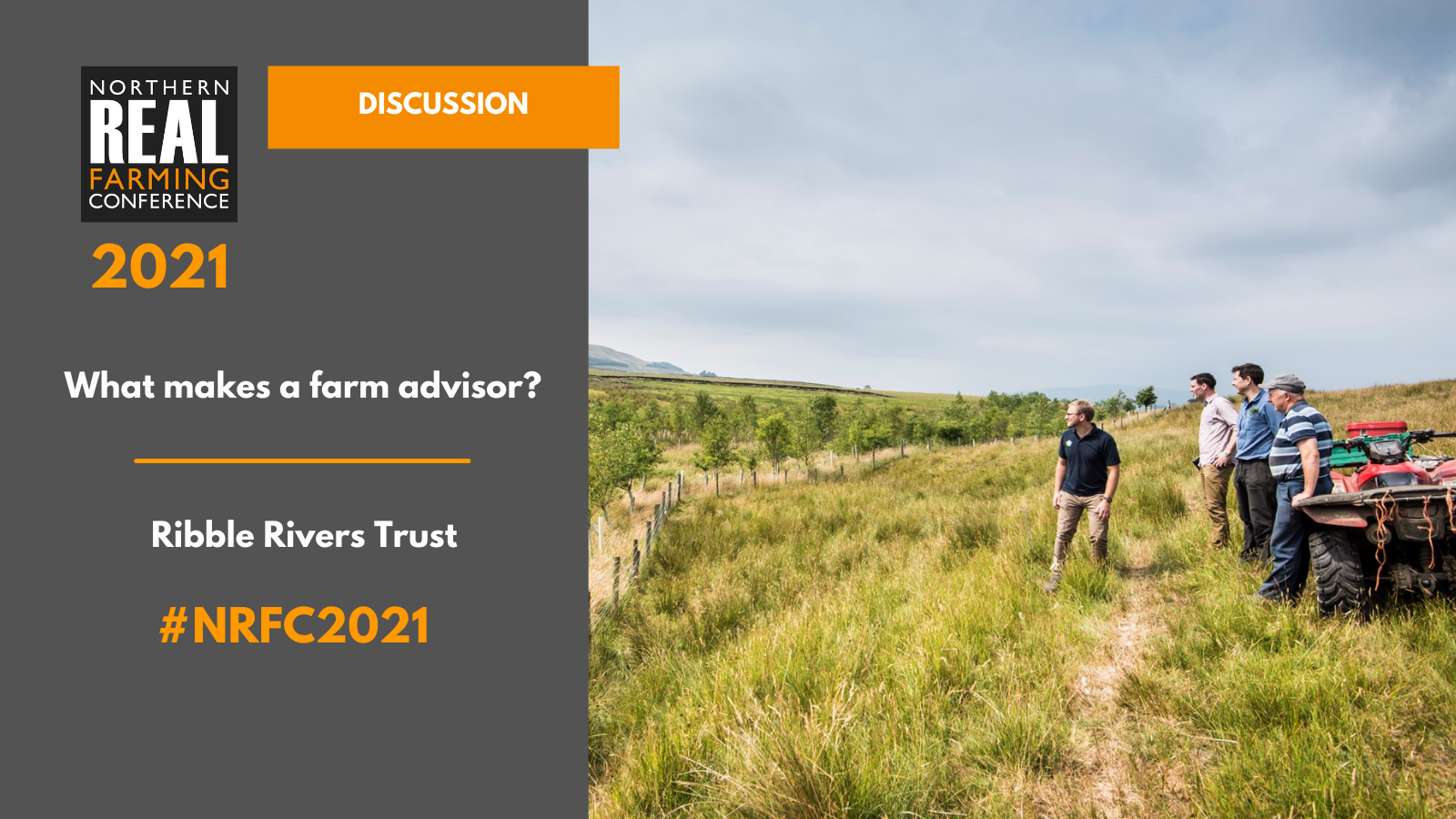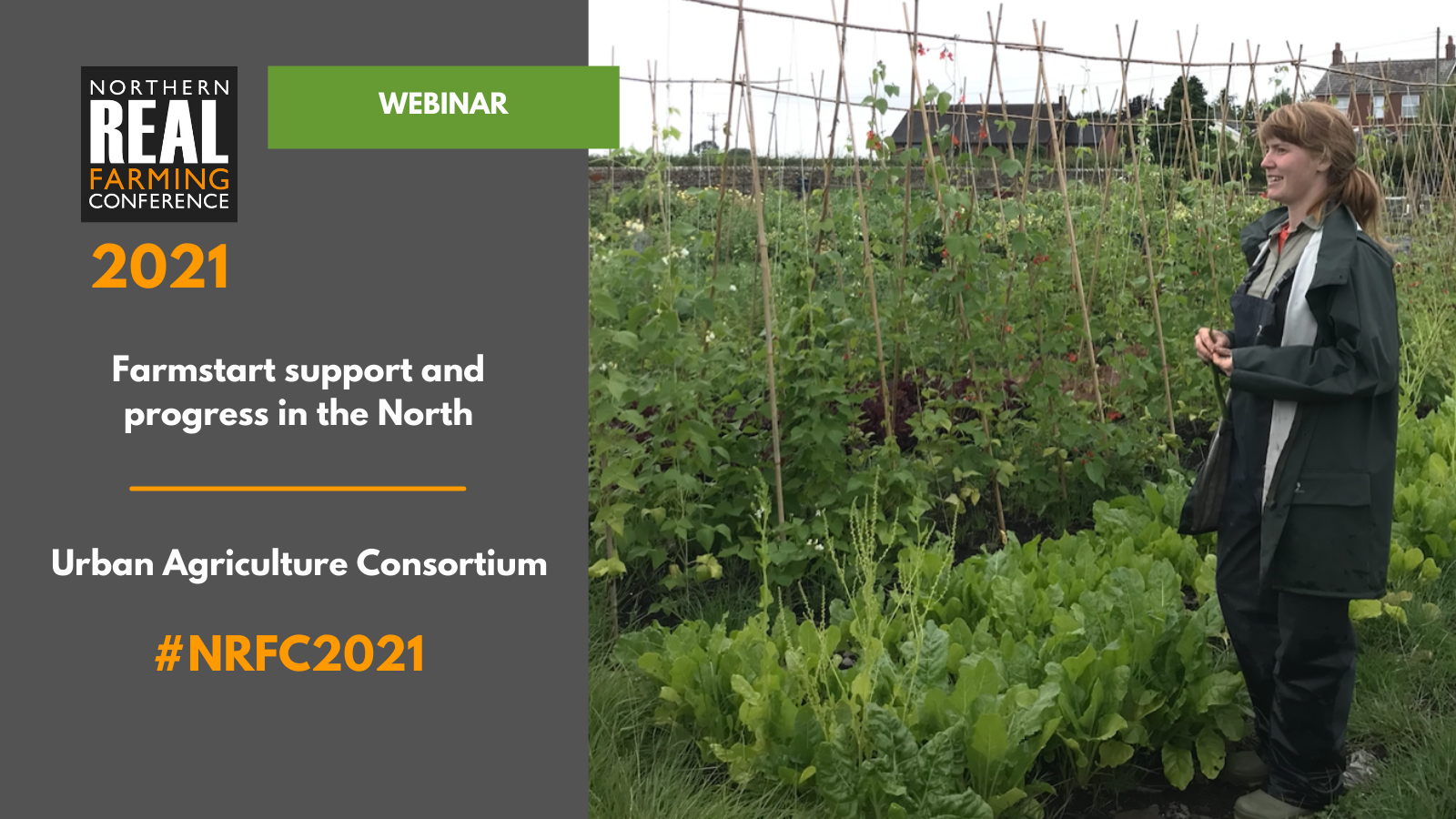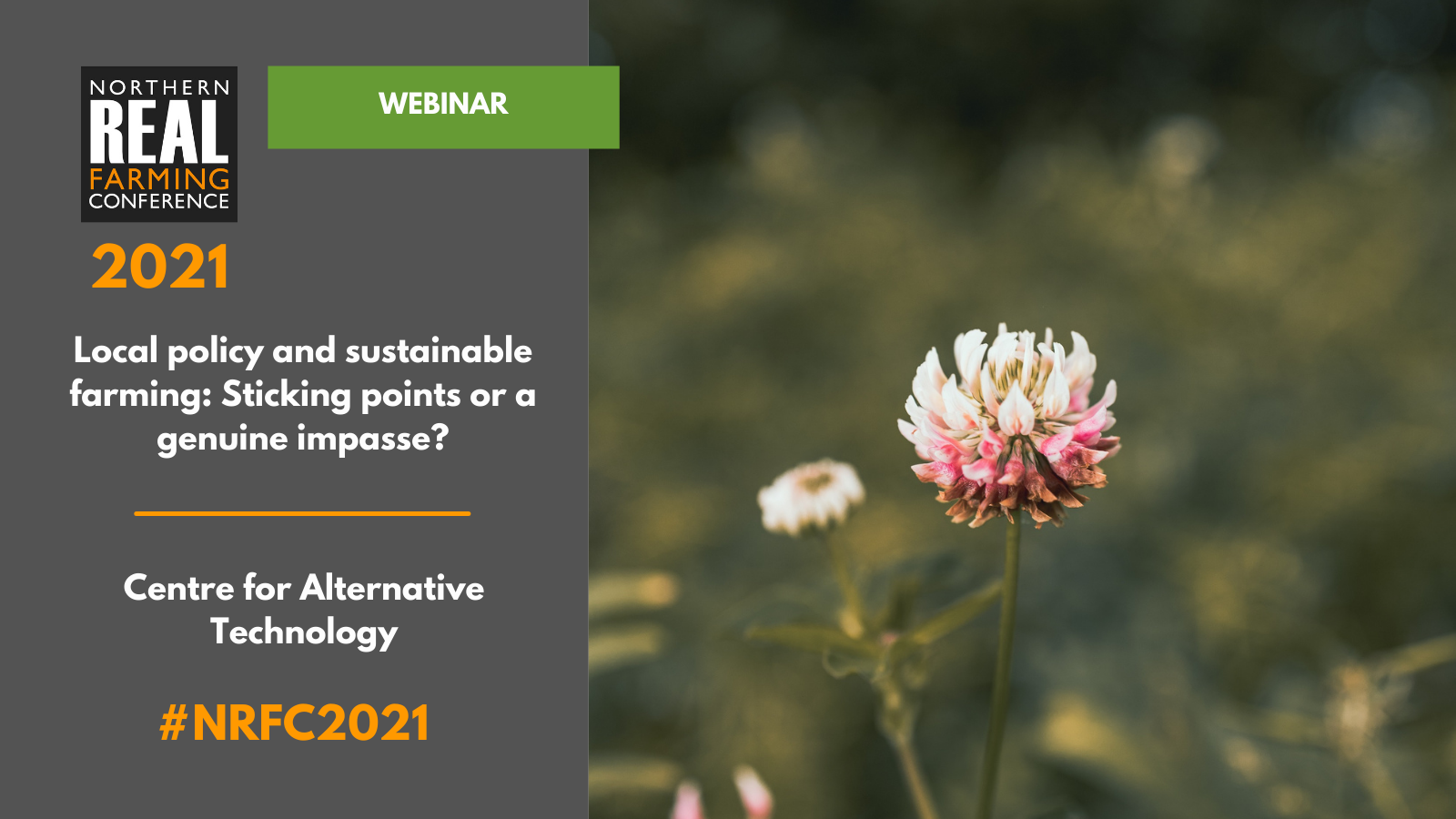Hosted by the Organic Research Centre
At NRFC20 we ran a session to explore how we could develop an agroecology food and farming network in the North of England – at the same time, growing and connecting networks emerged as a strong theme from across the conference as a way to continue to develop the movement for better food and farming in the North of England. In our session, we identified three key areas to expand:
- Bringing communities together across the region – creating an alliance that enables learning between the local level alternative food/farming initiatives.
- Reflecting on our experiences to make sure we ‘catch the wave’ – that is, learning from existing successful (and not so successful) initiatives on how to make the most of the momentum building behind finding alternatives to the current system.
- Communicating a common cause and expanding beyond our existing communities (e.g., different cultural landscapes) – including the notion of citizens identifying with the role that they play in developing a healthy, resilient food system. Being clear about the vision for the future that we want.
At NRFC21, we would like to build on this through the exploration of the values that we believe must underlie the self-sustaining hubs/networks that can build local economies. This will include exploring past and current experiences from organic farming in the UK – particularly in the North of England, where opportunities for expansion of organic and agroecological practices have been identified but challenges have also been identified.
There is a strong belief that real organic and agroecological principles can only be put into practice through the development of local communities and economies, although communities and economies built on shared values can (and do) exist and thrive beyond localities. However, ‘values’ in the abstract are not enough, communities and economies are built on ‘functional hubs’ e.g., markets, equipment or input sharing (e.g. seeds), shared transport/labour and shared identity (which occasionally emerges as local currencies, branding). Traceability, accountability, and support must also be considered.
Identifying and nurturing such ‘functional hubs’ based on farm practice and working structures is critical in developing genuinely alternative farming and food. To support this, in this session we will explore how the Organic Principles can guide the development of such hubs; what the practices are that we feel should feature on the farms and food businesses we choose to build local hubs around; and, how community culture and needs can be channelled as a driver to achieve truly sustainable local economies.
We would like to invite all those working towards embodying the principles of Health, Ecology, Fairness and Care, that offer the example of what is possible, to gather and share their experience. The ambition is to determine the synergies between what currently exists, identify gaps, and develop a framework to guide the development of local initiatives – from field to fork – that can de-mystify labels and make the fruits of an agroecological food and farming system accessible.
Speakers/hosts include:
Charlotte Bickler – Charlotte leads the Knowledge Exchange and Policy team at the Organic Research Centre, ensuring that ORC’s research gets out to its key stakeholders in the best format possible. She is based in West Yorkshire and has worked as a researcher at the ORC, Kew Gardens and The University of Bristol. Most recently, she has studied the application of evolutionary breeding within organic systems and developed an on-farm organic variety testing network (now a DEFRA funded project, LiveWheat) with her ORC Crops Team colleagues, Organic Arable and a group of participatory farmers. She has also coordinated knowledge exchange and on-farm trials of crop mixtures and worked to understand the enablers required to deliver crop diversification in European agriculture. She is working to develop local hubs built around Organic Principles and practices via the Organic at the Heart project which developed out of the NRFC20 session that she led (https://www.organicresearchcentre.com/our-research/research-project-library/organic-at-the-heart/).
Lawrence Woodward – Lawrence is a co-founder of the Organic Research Centre and was its director for 30 years. Under Lawrence’s directorship ORC and its advisory service helped establish and develop many farmer-based initiatives including the Organic Milk Suppliers Co-op, Organic Arable, The Organic Growers Alliance and a national Organic Farm Demonstration Network. Lawrence is currently a director of Whole Health Agriculture and continues to work with a range of farmer-based projects on health, food quality, seeds and producer development. He was one of the lead authors of the international Organic Principles of IFOAM (the International Federation of Organic Agriculture Movements).
Hannah Field – Hannah coordinates the Food, Farming and Countryside Commission’s (FFCC) Cumbria Inquiry and is a PhD Student at the University of Cumbria, researching Common Land. Hannah has spent the last 10 years in Cumbria, having worked for Forestry England and run her own business in wool craftwork, as well as studying at the University (BSc (Hons) in Animal Conservation Science and PGDip Ecosystem Services Evaluation). Her research and practical interests relate to how diverse perspectives and values in land management can be brought together for social and ecological benefit through place-based decision-making.
Steven Jacobs – Steven has been working in food and farming for 30 years, starting in market gardening and moving through farming to retail via catering. Following work with the Permaculture Association, the Co-operative Wholesale Society, Fresh & Wild (now Wholefoods Market) and Essential Trading Co-operative, Steven joined Organic Farmers & Growers in 2007. Steven represents OF&G on a number of roundtables, forums and working groups: Agricology, IFOAM EU, the NFU Organic Forum and the Agriculture Working Party of Sustain: the alliance for better food and farming. Steven is the founder and coordinator of the annual organic farming conference, the OF&G National Organic Combinable Crops, also known as NOCC. Steven chairs the Welsh Grain Forum and also sits on the steering committee for the Wales Real Food and Farming Conference – WRFFC / Cynhadledd Gwir Fwyd a Ffermio Cymru – CGFFfC and Food Manifesto Wales.

